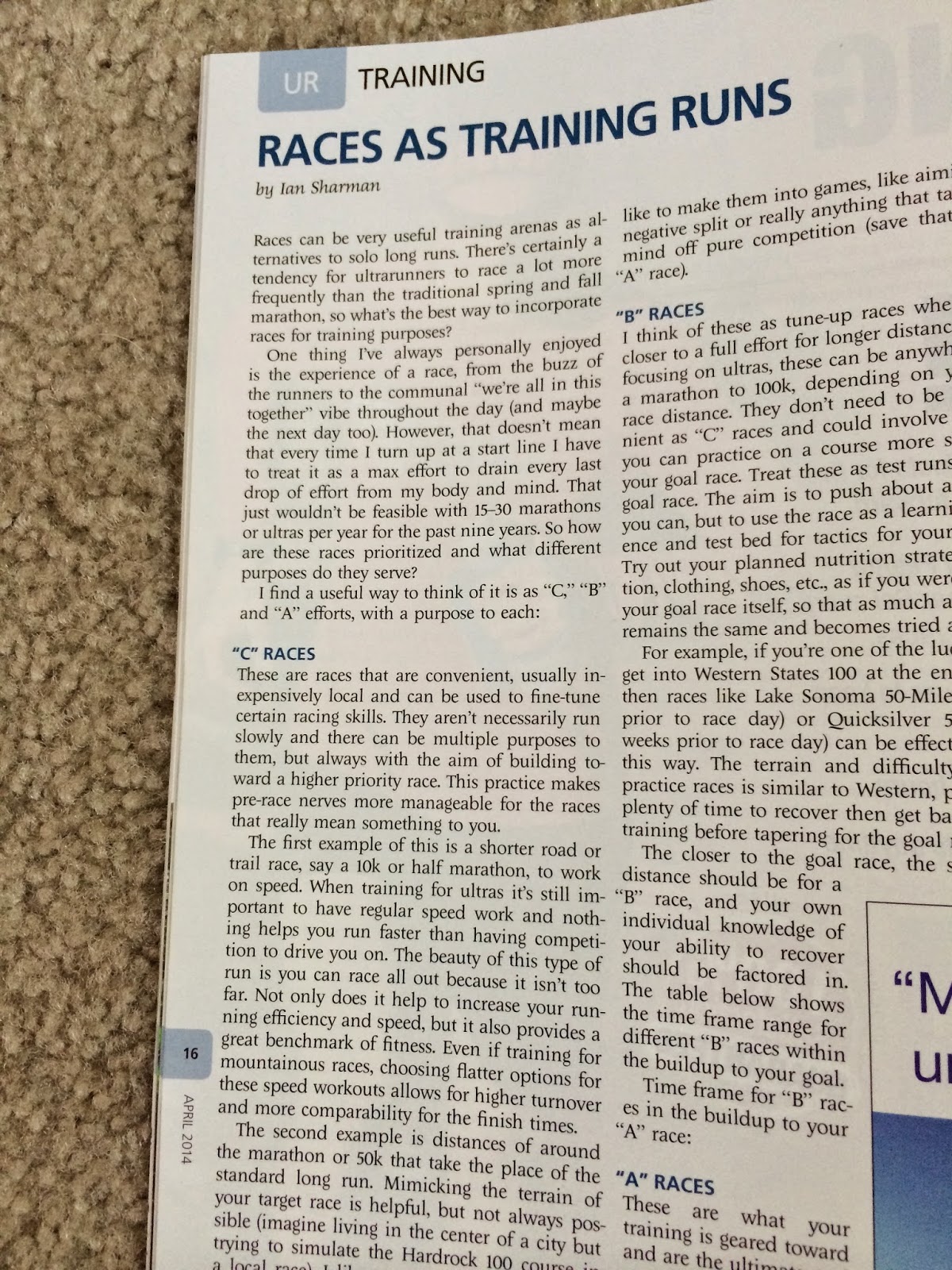In the latest edition of Ultra Running Magazine (April, 2014) I discuss using races for purposes other than racing all out for the best time or place. Related to this is the concept of super-compensation, involving subjecting the body to a greater than usual training load or stress which leads to muscles being forced to adapt and improve.
This is the time of year where many runners are building up to their focus 'A' race. Many of the people I run with as well as many I'm coaching are preparing for Western States 100. WS100 is also my target event right now and it's just under three months away so I'm getting into the peak phase of my training.
Super-compensation in practice
At this stage in the build up to a focus race I find it's really beneficial to run several races in close proximity, but off maximum effort. It gives an effective boost to endurance by using super-compensation since the period of racing involves a greater workload for the body to deal with, but not too much extra. The key here is having a period (in my case for about 3-4 weeks, but this varies depending on individual circumstances and the level of training a runner has reached) of slightly harder effort by the body, derived from a mixture of a little more volume and intensity. Choosing interesting and exciting races also helps.
There's a very fine line here to avoid over-doing things with much higher risk of over-training leading to fatigue and lower performance or injuries. Possible errors include:
- Running the training races too hard with intensity above the optimum for adaptation
- Increasing total mileage by too much with volume above what the body can withstand without overtraining
- A combination of a little too much of each of the above factors
- Picking up a small injury during the races and continuing to race, thus making it much worse
I wouldn't recommend the tactic of using multiple races in every situation for every runner, but it can usually be adjusted effectively.
Below is the example of my current training using races off maximum for super-compensation through the month of April this year.
- Mileage increase from around 80 miles/week to around 100 miles/week for four weeks
- Races as follows but with flexibility over the effort levels:
1. Grizzly Peak 50k (6,700ft ascent) 4/5/14 - comfortable pace, approx 100-mile effort
2. Lake Sonoma 50 Miler (10,500ft ascent) 4/12/14 - comfortable pace, approx 100-mile effort
3. Boston Marathon 4/21/14 - hard effort but a much shorter amount of time
4. Big Sur Marathon 4/27/14 - hard effort, but less than at Boston
Note the most important part of this process is the ability to be flexible and adjust the effort as required if the body seems overly tired. Potentially not starting races is an option but that's only likely if an injury occurs.

No comments:
Post a Comment